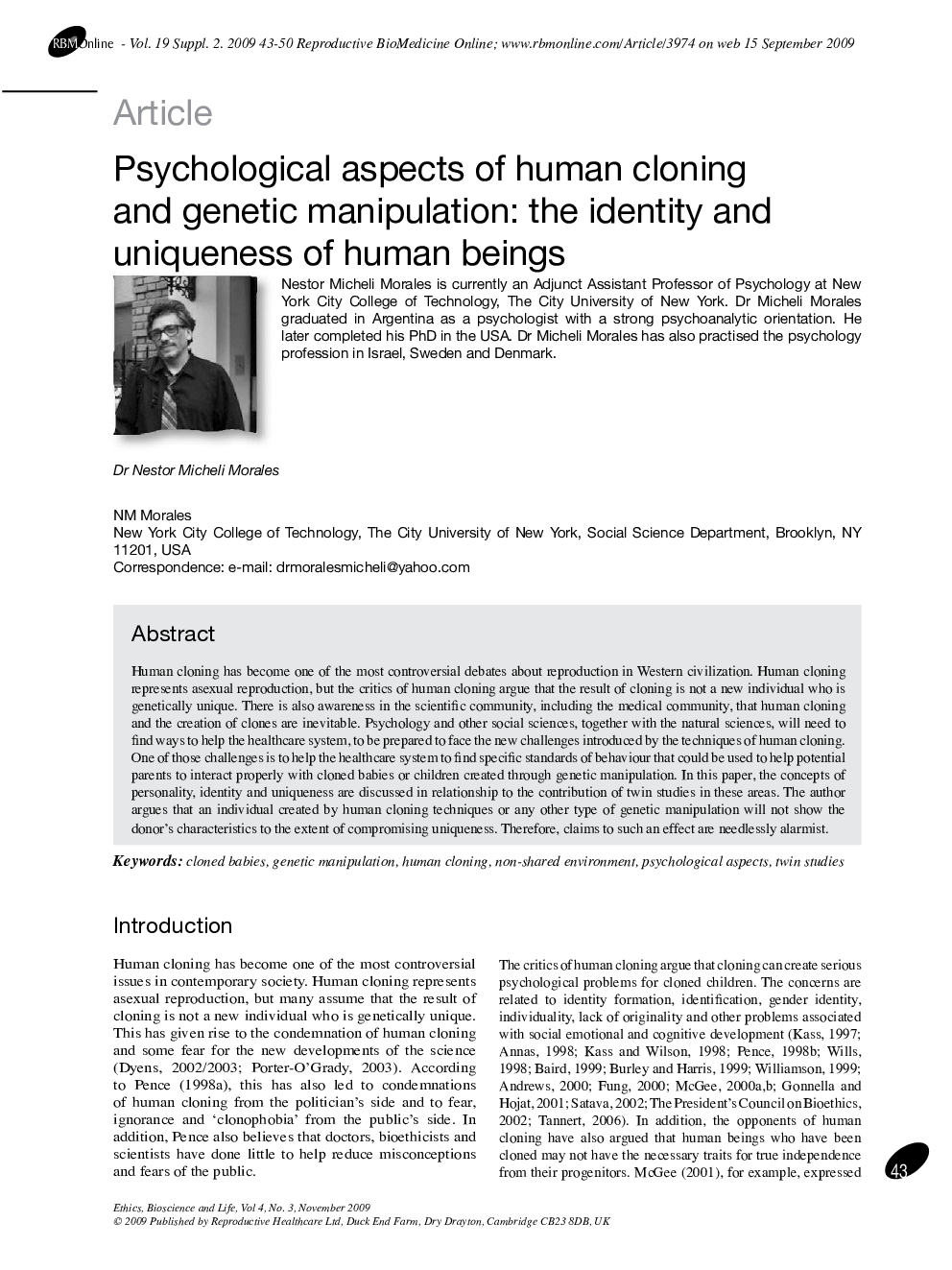| Article ID | Journal | Published Year | Pages | File Type |
|---|---|---|---|---|
| 3972368 | Reproductive BioMedicine Online | 2009 | 8 Pages |
Human cloning has become one of the most controversial debates about reproduction in Western civilization. Human cloning represents asexual reproduction, but the critics of human cloning argue that the result of cloning is not a new individual who is genetically unique. There is also awareness in the scientific community, including the medical community, that human cloning and the creation of clones are inevitable. Psychology and other social sciences, together with the natural sciences, will need to find ways to help the healthcare system, to be prepared to face the new challenges introduced by the techniques of human cloning. One of those challenges is to help the healthcare system to find specific standards of behaviour that could be used to help potential parents to interact properly with cloned babies or children created through genetic manipulation. In this paper, the concepts of personality, identity and uniqueness are discussed in relationship to the contribution of twin studies in these areas. The author argues that an individual created by human cloning techniques or any other type of genetic manipulation will not show the donor's characteristics to the extent of compromising uniqueness. Therefore, claims to such an effect are needlessly alarmist.
